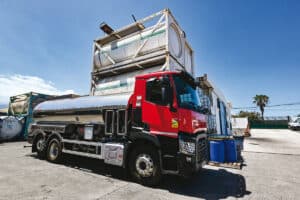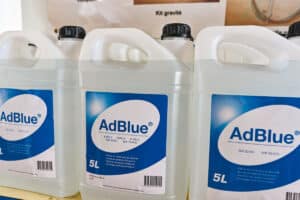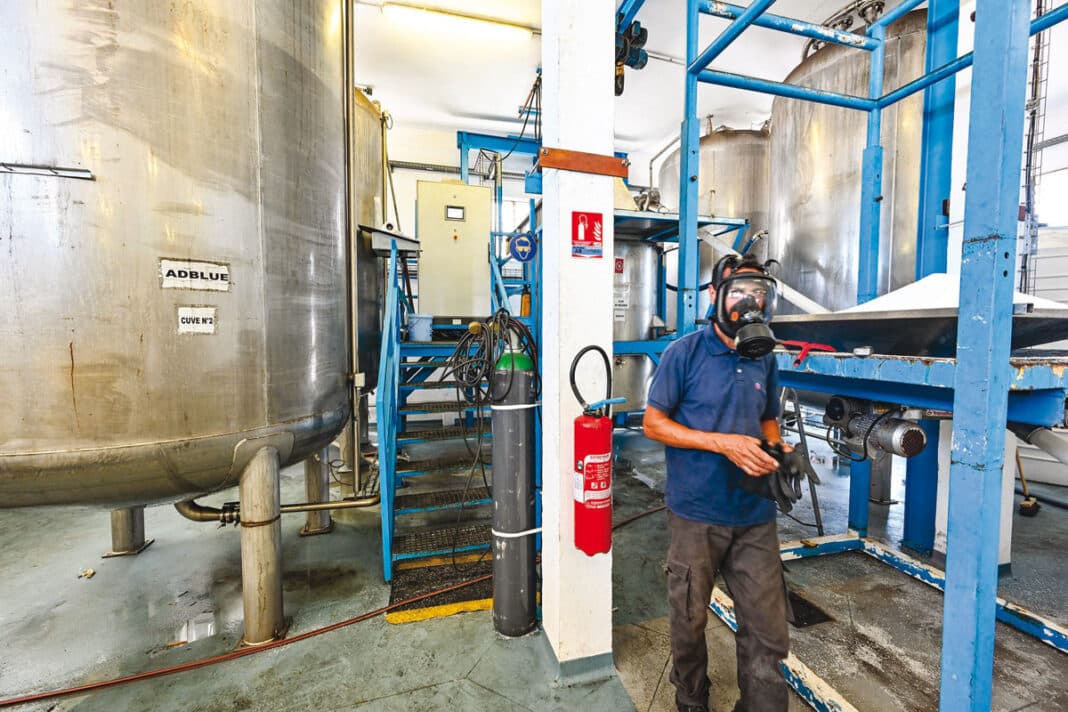AdBlue is the depollutant that allows diesels to comply with the European standard for nitrogen oxide emissions. : heavyweight, bus, commercial vehicles, private cars, work machinery, fishing boats, etc. A product designed for European climates, whose storage and use within our latitude requires respecting certain rules.
Producing AdBlue under license since 2013, the parachemical company EECA recalls the storage and use advice for this additive designed in Germany. AdBlue is indeed sensitive to heat and the duration of storage.. Above 35°C, the product presents a risk of alteration. “The temperature causes the evaporation of water, which can lead to partial recrystallization of the urea, second component of the product. On the other hand, urea being a fertilizer, algae development may occur if storage is poorly ensured. Light and its ultraviolet rays are also factors of alteration”, specifies Dominique Rio, hydrocarbon specialist and founding president of EECA. Hence the importance of following several recommendations. Do not store the product in the sun, in full light, but choose a place in the shade, ventilated and cool. Adjust the quantity purchased to its consumption to reduce overlong storage. Favor full AdBlue tanks to limit evaporation.

To situate the economic and environmental stakes represented by this product and its local production, you should know that the Euro 6 standard, entered into force in 2014, imposed on trucks an 80% reduction in their nitrogen oxide emissions. The AdBlue depollutant was the response adopted by the entire automobile industry. Used for Diesel engines equipped with specific catalytic converters, the additive reduces emissions of fine particles into the atmosphere by 85%. Its supply is therefore vital for many activities, starting with that of the carriers, to operate their vehicles and to comply with regulatory obligations applying to diesels.
Product quality guaranteed by the short circuit
The EECA company has ISO 22241, renewed every three years, which authorizes it to produce AdBlue under license under compliant manufacturing conditions, storage, transportation and distribution of the product. Imported AdBlue, his, is transported by boat in containers whose temperature rises to 55°C. It should be analyzed on arrival to verify its conformity and be able to be sold under the name AdBlue, an obligation poorly respected in Reunion. By manufacturing AdBlue on site, EECA's product is not subjected to the high temperatures of import containers and the time between manufacturing and consumption is short, which guarantees a quality product.

If another argument were needed in favor of the local solution, the Covid crisis, with the interruption for several weeks of economic exchanges and the disorganization of maritime freight which followed, gave it. Founder of the EECA company in 1997, Dominique Rio thus gained the trust of local oil companies Vito, Engen and Ola and, in addition to sales at service stations, EECA supplies freight and passenger transport professionals, work machinery and agriculture. Or 80% of the AdBlue market.












